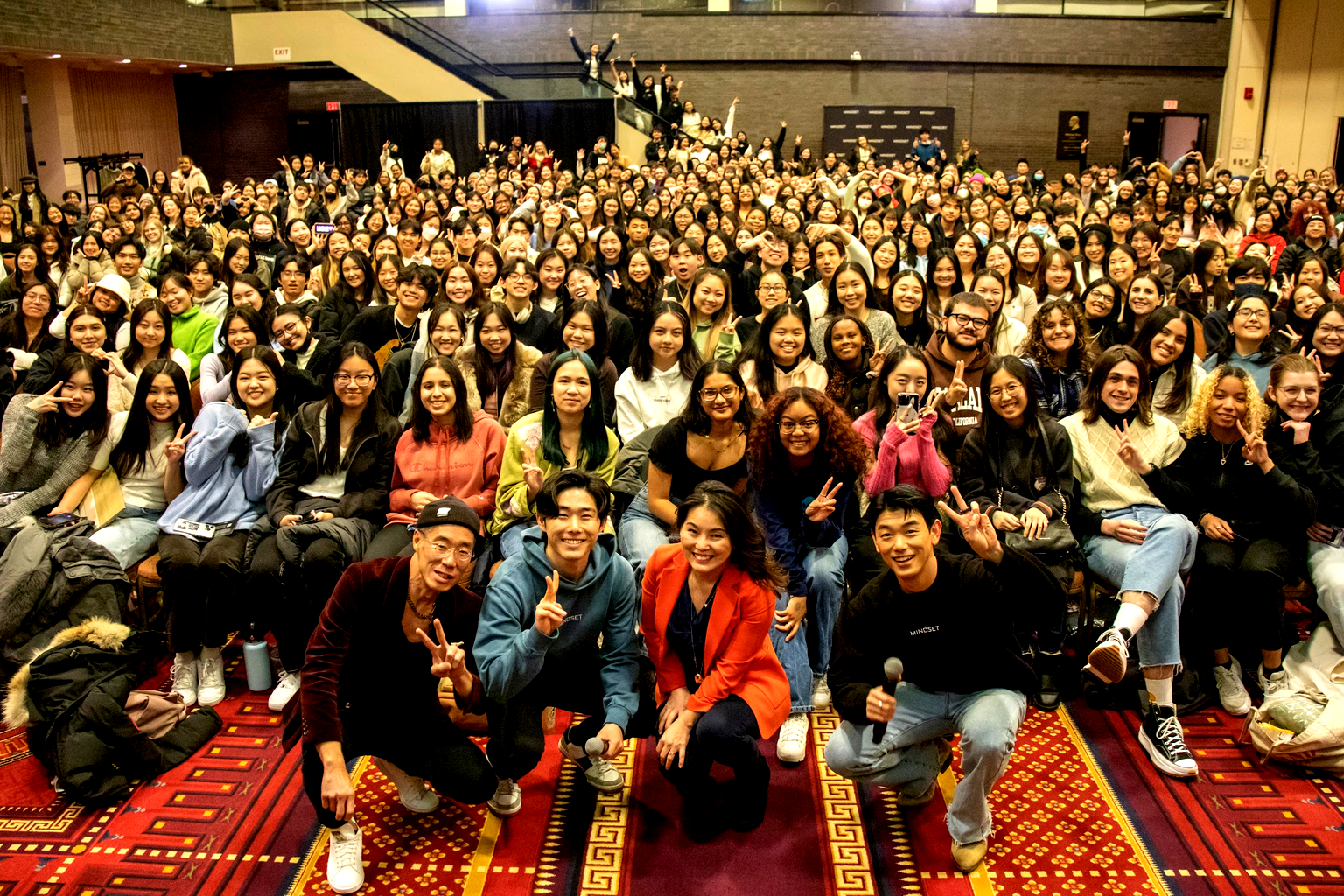Meet the Gen Z entrepreneur who wants to help alleviate the mental health crisis through sound



By William Yuk
With Travis Chen at the helm of the music therapy app SoundMind, thousands of users are lulled into a blissful trance, soothed by lush soundscapes composed of purported healing frequencies that are meant to relax the mind and nourish the soul.
“Feeling the beat through music [helps you] really understand and recognize what your body is feeling, whether it’s stress, anxiety, happiness, or excitement,” Chen, 24, says. “You can build an understanding that you need to re-center yourself, relax your body, refocus on what truly matters … to bring your whole self to your work, personal life, and professional life. That’s what SoundMind represents.”
Speaking of his inspiration, Chen credits his grandfather for his work ethic.
“My grandpa is my biggest influence and role model. He actually told me recently that weekends are a new invention. 50 years ago or even 60 years ago when he was driving his business, he worked through every single week, every single day, 24/7/365 days a year.”
As Chen listened intently to his grandfather’s stories, he could almost feel the pulse of the factory floor, the rhythm of his grandfather’s hard work and dedication. The rough, splintered surface of the wooden tables where his grandfather slept provided a tangible beat to his narrative, one that would inspire and drive Chen throughout his own entrepreneurial journey.

“I actually started my own side business at the age of 10, selling stationery to location schools, bookstores, and libraries,” Chen says. “I did this because of my own family business, which was already in this industry, but I really, really wanted to learn what it means to do inventory, do sales, putting a website together. I even created a video advertiser with a traditional green screen.”
At the age of 10, Chen had already proven to be the living legacy of his grandfather’s pioneering spirit, spending early mornings, late nights, and weekends pushing pens, pencils and lawnmowers. But as he continued to push his entrepreneurial aspirations further and further, Chen was silently suffering under the weight of crushing personal, familial and cultural expectations.
“Growing up in the Asian American — specifically Taiwanese American — community, mental health is something that we didn’t talk about. I still remember growing up and being used to shaking my head saying yes, obeying others, elders especially, and sucking everything in,” Chen says. “My inner emotions and health bubbled to the point where I had a lot of anxiety and panic attacks that hindered my ability to grow as a person and grow my confidence overall.”
It wasn’t until Chen was exposed to various different cultural backgrounds and upbringings on the collegiate and corporate levels that he began to reexamine his relationship with his mental health.
“I had to almost relearn how to express my emotions and express my own mental health and knowing that it’s OK to take a break from my own self,” says Chen.
“I was used to saying yes growing up, especially in the Asian community, but I had to learn to say no. It got to a point where I was stretched very thin, and there was too much on my plate because I just said yes to everything and agreed with everything everyone else said. So I wanted to readjust.”
Chen’s realization sparked a passion for mental health advocacy, leading him to champion reforms in the political sphere.
While working on Capitol Hill, he roomed with like-minded congressional intern and University of Southern California schoolmate Brian Femminella.
“Brian was doing research presentations on music therapy and the research that he had conducted at USC. And I was like, ‘Have you ever thought about implementing all of these features and all this research into a startup?’” Chen says. “At that time — he’ll be the first to admit this — he didn’t really know what a startup meant, but I knew that there was an opportunity ahead of us that I thought we could potentially make into a real product and company that people and users would really enjoy using.”
To tackle such a widespread problem affecting multiple communities, Chen, who had previously worked in big tech, and Femminella created SoundMind — a platform that features a wide array of soundscapes that harness the power of binaural beats.
These beats are generated by playing two different frequencies, creating a third frequency that is claimed to induce or alleviate emotions to address diverse user needs.

“Binaural beats are a sound phenomenon that puts your brain into a specific state with different sound frequencies,” Chen says. “Our technology is unique in the way that we specifically use the sound that’s already been researched to help with individuals and stressors.”
However, the key to SoundMind’s success goes beyond its beats. By tracking user data, the app creates an intuitive mental health profile that provides users with a synopsis that purportedly details their entire mental health journey.
“This data-driven aspect is what users love. When we think about different sleep apps, I want to be able to see how sleep has impacted my day and my mood,” Chen says. “These mental health profiles that we’ve created, impact individuals more so than what a binaural beats YouTube video can do because we want to see the actual results.”
From a humble dorm room dream to a thriving company with over $2 million in funding, Chen’s personal growth has been closely tied to SoundMind’s.
“I was a very risk-averse person in the very beginning, and it’s because of my innate nature to say like, ‘Hey, let’s take everything slowly and one at a time. But as I look back over the past three years, what I’m really proud of, is the ability to fail fast and pivot fast as much as I can,” Chen says.
“Building a startup is taking a risk. So the ability to dive deep right into quick decisions makes an impact. Without them, there’s no movement or progression. That has really changed my thinking ability and helped me a lot as a person as a human being and as a business leader.”
But Chen’s journey has also exposed him to the ugly realities of the startup space, forcing him to confront a disproportionate level of racial prejudice all too familiar with the AAPI community.

“We had a vendor we were working with and regardless of whether this was making fun or not, it was rude. We were chatting on the streets of San Francisco when he blurts out, ‘Oh Travis, you don’t have to be worried about COVID, it’s already in you,’” Chen says.
“The fact that our country is taking five steps back to what racism was like, let’s not forget who built those railroads. Let’s not forget who endured torture. It’s not just Black Americans, it’s not just Jews, it’s also Asian Americans.”
Chen’s experiences within the startup space have also uncovered a more insidious form of discrimination, with subtle stigmas and biases that tend to pigeonhole Asians into specific technical roles.
“There are instances where I still question why people look at me in certain ways in founder spaces,” Chen says. “The first thing they ask me is ‘Are you the CTO? Are you the head of engineering? Are you a leading product?’ And I’m like ‘no, no, I’m not. I’m not a software engineer. I’m the COO, and I’m the co-founder, and they all open their eyes.’”
Chen’s Asian heritage and entrepreneurial identity are deeply intertwined, yet even for him, the stigmas and biases have forced him to question his own aspirations and the potential roadblocks he may face because of his race.
“That has been something that affects me every single time someone said that and asked that to me. This is a stereotype that people put us and categorize Asians. ‘Oh, you’re the engineering guy. You’re the person that can do all the data science or the product person.’ But why can’t we also be the CEOs of the world? That’s something that I continue to question every single day,” Chen says.
“I oftentimes think, in the Asian American community, we talk about this bamboo ceiling and I think that at some point in time, as a young Asian American innovator, I will hit that ceiling.”
Despite the challenges he has faced, Chen remains unwavering in his commitment to building SoundMind and inspiring the next generation of Asian American visionaries.
“When I reflect on those moments, it just reminds me how important it is for people like myself to continue to amplify the fact that we Asians can be anyone and we can be anywhere,” Chen says. “I want future Asian American founders outside of engineering or CTO or head of product roles to feel and find that they can still have a voice.”
Share this Article
Share this Article





